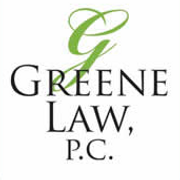
Trusts and wills are two legal documents used for estate planning to ensure a person’s assets are handled properly after their passing. While they bear similarities, they each have unique purposes. Understanding the key differences between the two can help you prepare for making the best decisions for your family’s financial future.
What Is a Trust?
A trust is an estate planning tool that commonly takes effect upon the grantor’s passing, though it can begin distributing assets before that or even long afterward. Also known as the trustee, the grantor is the legal owner of the assets, which will eventually be passed on to one or more designated beneficiaries. Trusts can be private, meaning they do not have to pass through a court to be distributed.
 There are two main types of living trusts: revocable and irrevocable. With a revocable living trust, you can change the terms as you see fit. In an irrevocable living trust, you grant your trustee the control of any asset you move into the trust, and these terms cannot be reversed.
There are two main types of living trusts: revocable and irrevocable. With a revocable living trust, you can change the terms as you see fit. In an irrevocable living trust, you grant your trustee the control of any asset you move into the trust, and these terms cannot be reversed.
What Is a Will?
A will is a document that can cover nearly all aspects of estate planning. In addition to designating who should receive your assets, a will also establishes a legal representative to ensure your wishes are pursued. Wills only take effect after their holder passes away.
In addition to determining who should receive which assets at the time of your passing, a will can also express additional wishes. For instance, it can designate guardianship for any surviving children. It may also outline wishes for funeral arrangements.
While wills are more comprehensive than trusts, they must pass through probate. In other words, a court must be involved to ensure property is distributed according to the holder’s precise wishes, and the will then becomes a part of the public record.
Navigating estate planning can be complex and confusing, which is why the experts at Greene Law PC will walk you through every option to make the process as smooth as possible. Located in Hartford County, CT, this law firm specializes in trust development and will creation. Find out more about their comprehensive planning services online or call (860) 676-1336 to set up a consultation.
About the Business
Have a question? Ask the experts!
Send your question

